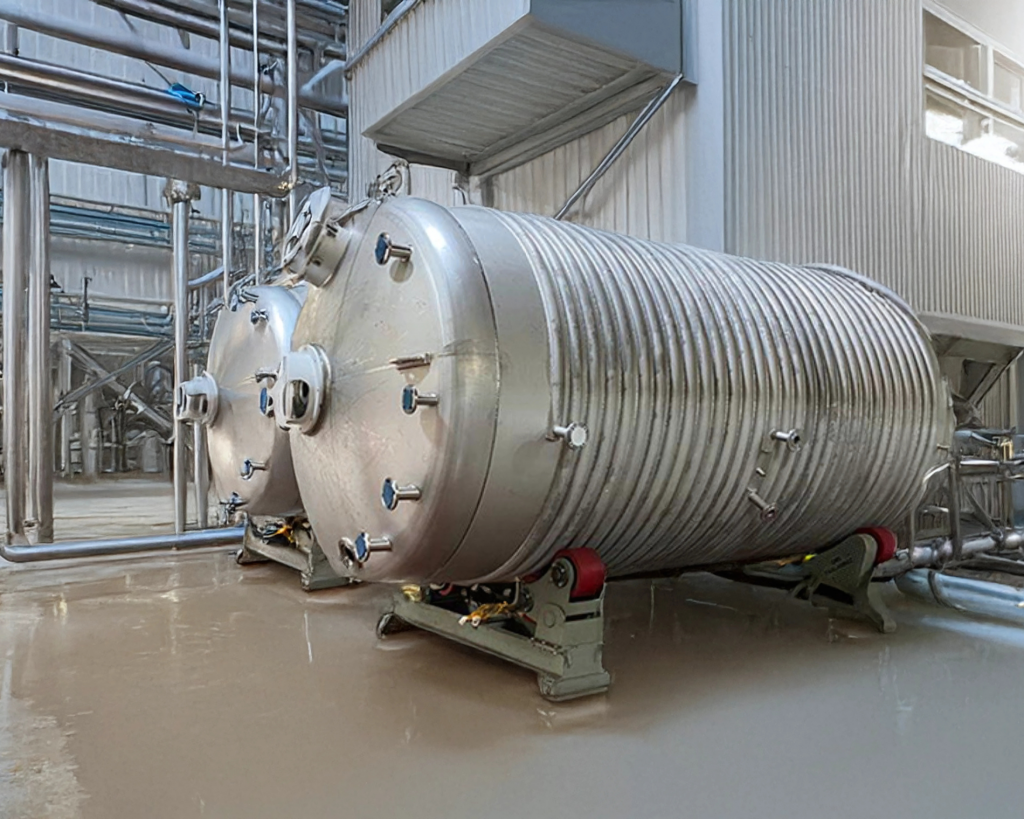What is a Serpentine Mixer?
What is a Serpentine Mixer? It is a static mixing device that uses winding, curved channels to improve fluid blending and heat transfer efficiency. By forcing liquids or gases to change direction repeatedly, it ensures uniform mixing without moving parts. What is a Serpentine Mixer? It is widely used in chemical, pharmaceutical, and food industries, offering durability, compact design, and cost-effective operation.
A serpentine mixer is a special type of mixer that features coiled tubes called serpentines. By passing a hot or cold fluid through these tubes, it is possible to control the temperature of the material being processed. It is particularly used in processes requiring heat transfer and offers significant advantages in terms of energy efficiency.
Working Principle of Serpentine Mixers
Heat Transfer Mechanism
Serpentine mixers transfer fluids used for heating or cooling. This process works as follows:
Hot or cold fluid is supplied to the serpentine pipes.
Heat is transferred to the mixed substance via the surface of the tubes.
In this way, the mixture temperature reaches the desired level.
For example, a serpentine mixer can be used to keep chocolate fluid in a food production facility.
Fluid Movement and the Mixing Process
In serpentine mixers, the fluid movement creates a turbulent flow, resulting in a homogeneous mixture. This results in:
Heat is distributed evenly.
Product quality increases.
Unwanted temperature differences are eliminated.
Serpentine Mixer Types
Single Pass Systems: Heat transfer is done in one go, working faster and more efficiently.
Multi-Pass Systems: Suitable for more precise heating and cooling processes.
Steam and Water Heating Models: These are systems that work with steam or hot water and provide energy savings.
Usage Areas of Serpentine Mixers
Chemical and Petrochemical Industry
It is preferred for chemical reactions at controlled temperatures. It is particularly used in reactors, solvent mixtures, and polymer production.
Food and Beverage Production
It is used to maintain a homogeneous consistency and desired temperature in the dairy products, chocolate, confectionery and beverage industries.
Pharmaceutical Industry
In pharmaceutical production, stabilization and controlled mixing of active ingredients are ensured.
Energy and Waste Management
It provides efficient energy management by being used in biodiesel production and wastewater treatment processes.
Advantages of Serpentine Mixers
Provides high heat transfer efficiency.
It reduces costs by saving energy.
It offers durable and long-lasting use.
It is produced from materials with high chemical and thermal resistance.
Things to Consider When Choosing a Serpentine Mixer
Material Selection: Corrosion-resistant materials such as stainless steel should be preferred.
Capacity and Pressure Values: Models with the correct flow rate and pressure should be selected according to the area of use.
Ease of Cleaning and Maintenance: Easy-to-clean models are important in sectors that require hygiene.
Maintenance and Cleaning of Serpentine Mixers
It should be cleaned regularly with acidic solutions to prevent calcification and blockages.
Pipes and connection points should be checked at regular intervals.
Sterilization processes are especially important in the food and pharmaceutical industries.
Differences Between Serpentine Mixers and Traditional Mixers
Feature | Serpentine Mixer | Traditional Mixer |
Heat Transfer | High efficiency | Low efficiency |
Homogeneous Mixture | Better | Lower |
Energy Savings | High | Medium |
Area of Use | Broad | More limited |
Serpentine mixersThey are modern equipment that offers high efficiency, energy savings, and long service life. Homogeneous mixing and temperature control in the industry
It has an important place in every process requiring maintenance. Maximum performance can be achieved with the right selection and regular maintenance.
What is a Serpentine Mixer? Key Features, Uses, and Industrial Benefits
Frequently Asked Questions (FAQ)
It is widely used in the chemical, food, pharmaceutical, and energy industries.
Periodic chemical cleaning is recommended to prevent the formation of lime and scale.
Yes, it minimizes energy consumption because heat transfer is efficient.


